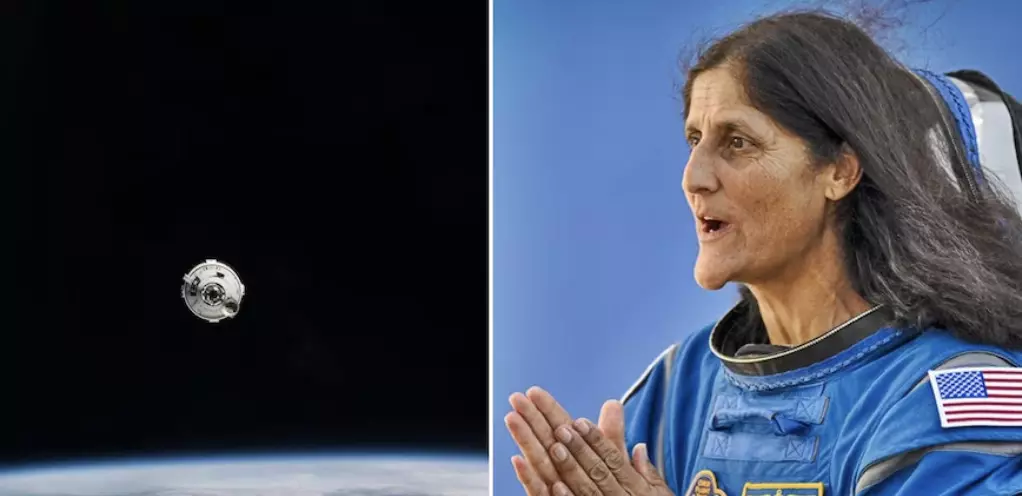Year-End Review: Top 8 science & space updates of 2024
Year-End Review: Top 8 science & space updates of 2024

Year-End Review: Top 8 science & space stories of 2024
As 2024 draws to a close, it’s time to reflect on some of the year’s most significant science and space developments. From awe-inspiring celestial events to groundbreaking missions, here’s a look at the top eight science stories that captured global attention in 2024.
North American Total Solar Eclipse: A Spectacle Like No Other
On April 8, 2024, millions of people across North America were treated to a once-in-a-lifetime coast-to-coast total solar eclipse. Spanning over 4,000 miles, the eclipse swept from Mexico across 14 US states and into Canada, drawing the largest eclipse audience ever. Despite clouds obscuring Texas, the event was unforgettable, with observers marveling at the rare celestial phenomenon.
NASA Delays Artemis Missions
In December 2024, NASA announced delays to its Artemis Moon missions. The Artemis II crewed test flight will now launch in April 2026, while Artemis III, the mission to land astronauts on the Moon, has been pushed to mid-2027. This delay reflects technical challenges with the Orion spacecraft’s life support systems, but NASA remains committed to this ambitious program, which aims to take humans back to the Moon and eventually to Mars.
Sunita Williams Leads Space Farming Research
NASA astronaut Sunita Williams made headlines with her work on growing “Outredgeous” romaine lettuce aboard the International Space Station (ISS). As the ISS commander, Williams is exploring how microgravity affects plant growth, a study that could have profound implications for long-term space missions and sustainable farming practices on Earth.
Chandrayaan-3 Provides Clues to the Moon’s Past
The Indian Space Research Organisation (ISRO) made a significant discovery with its Chandrayaan-3 mission. Data from the Pragyan rover, which landed on the Moon's south pole, suggests that the Moon may have once been covered by a vast ocean of magma. This finding adds to our understanding of the Moon’s early geological history and its potential to support future lunar exploration.
Sunita Williams and Barry Wilmore Stuck in Space
NASA astronauts Sunita Williams and Barry Wilmore, who were scheduled for an eight-day mission aboard the ISS, are now on an extended stay due to a malfunction with their Boeing Starliner spacecraft. The two astronauts have been stranded in space since June and are expected to return to Earth in 2025, missing holidays with their families as they wait for a solution.
NASA's Voyager 1 Contact After 47 Years
In a remarkable achievement, NASA reestablished communication with the Voyager 1 spacecraft, which is now over 15 billion miles from Earth. The spacecraft, which has been operating for more than 47 years, experienced a brief interruption but was able to reconnect, sending a faint signal back to Earth. Voyager 1 continues to be humanity’s farthest-reaching probe, providing invaluable data about interstellar space.
India’s Gaganyaan Mission Prepares for Unmanned Test
India’s space agency, ISRO, is preparing for its Gaganyaan unmanned mission, slated for March 2025. This mission will be a key step toward India's first manned mission, expected in 2026. With astronauts currently in training, the mission aims to test spacecraft systems and ensure a safe return to Earth for future crewed missions.
Climate Change Impacts: Mount Fuji’s Snowless October
Japan's Mount Fuji was snowless in October 2024, marking the latest date for this to happen in 130 years. Typically, the volcano’s peak is snow-capped by early October, but this year, unusually high temperatures kept the snow from forming. Experts point to climate change as a key factor in this delayed snowcap, highlighting the ongoing effects of global warming.
From cosmic breakthroughs to climate change indicators, 2024 was a year of monumental progress and challenges in the realms of science and space exploration.

